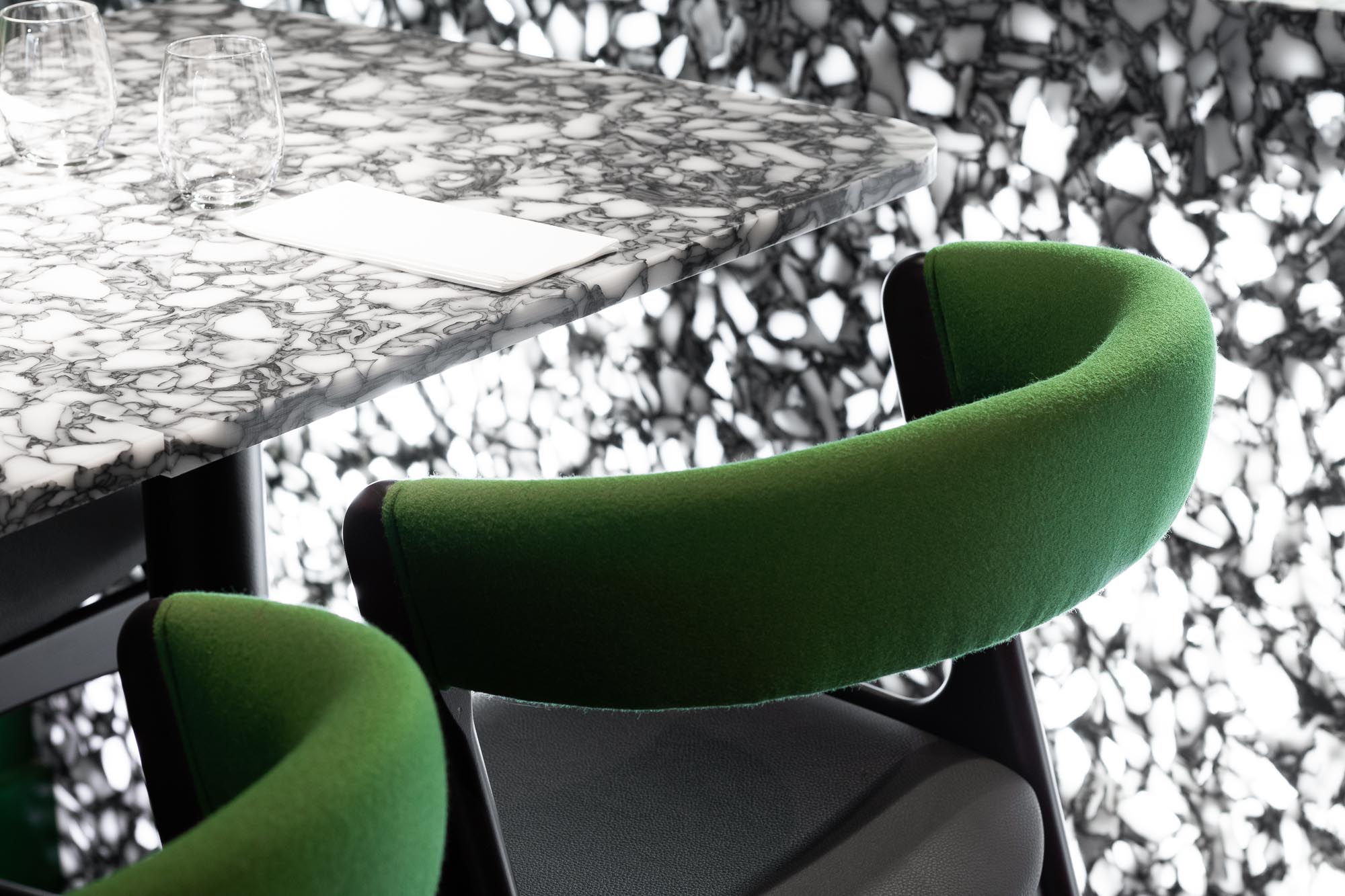Unless you have lived under a rock recently you will know that creating restaurants and bars sustainably must be at the forefront of your designs. As specialists in the Bar & Restaurant sector, we understand the vital role that eco-conscious interior design plays in redefining dining experiences.
1) Choose eco-friendly products
There is a plethora of new, innovative & beautiful products on the market that are eco- friendly and embrace the recycling old products. We have created:
- bars out of re-used yogurts pots,
- lights made from mushroom,
- tiles crushed from disused products
The choice of materials and finishes you choose to use in your bar or restaurant has a significant impact on your overall sustainability. By prioritising the use of eco-friendly materials, you can ensure that the spaces your customers occupy are not only visually appealing but also environmentally responsible.
Sustainable materials can add character and charm to interiors, creating unique and inviting atmospheres for clients to enjoy. This means you can redefine your restaurant’s concept and take your dining experiences to the next level.

2) Repurpose buildings
As well as buying products that have been created with a true sustainability lense, we ensure that we are re-using as much as we can in the space without hindering the finished product. As well as respecting the heritage of a building, we see what elements can be repurposed whilst ensuring the look & feel is in line with the concept of your bar & restaurant.

3) Think energy efficiency
Restaurants and bars use more energy than any other commercial space and sustainable design can significantly reduce the environmental impact. Prioritising energy efficiency and waste reduction to help foster green practices and cut operational costs is crucial.
As well as how you use your energy, integrating energy-efficient lighting, such as LED fixtures and sensors not only reduces your energy consumption, but also creates the perfect ambience for different dining experiences. In addition, exploring opportunities for natural lighting and ventilation to minimise the need for artificial cooling and heating can further reduce your carbon footprint.
4) Efficient space planning
Efficient space planning lies at the core of every successful bar and restaurant design. We understand that optimising spatial layouts not only reduces operational costs but also enhances the overall dining experience for customers.
When crafting restaurant layouts, we pay meticulous attention to traffic flow, ensuring that customers can move comfortably within the space without disruptions. This thoughtful approach not only enhances customer satisfaction but also reduces unnecessary energy consumption due to over-illuminated or poorly utilised areas.

Prioritising flexibility of design where possible that accommodates varying seating capacities is crucial. Incorporating modular furniture and movable partitions allows for easy reconfiguration, adapting the space to different needs and events. This approach not only increases the longevity of the design & the venue but also reduces the need to utilise, heat & light all spaces.
Moreover, focusing on efficient space planning extends to storage solutions. Identifying your specific storage requirements and designing for these can prevent excess inventory, thus reducing waste. By considering the entire lifecycle of a restaurant or bar’s space, from its initial layout to ongoing operations, it ensures the design offers sound foundations for long-term sustainability.
5) Avoid VOC’s — choose sustainable materials
In all elements of build, using eco-friendly products is key. For example the avoidance of Volatile Organic Compounds (VOCs) are organic chemicals that can easily evaporate into the air at room temperature. In the context of sustainable design, VOCs are of significant concern due to their potential adverse effects on indoor air quality and the environment. Many conventional building materials, paints, adhesives, and finishes contain VOCs, which can lead to “off-gassing” in enclosed spaces. Prolonged exposure to VOCs may cause respiratory issues, allergies, and other health problems. Therefore, we encourage the incorporation of low-VOC (volatile organic compounds) paints and finishes, contributing to improved indoor air quality and promoting a healthier environment for both guests and staff.
Want help upgrading your bar or restaurant with a sustainable design? Get in touch with us to discuss your project today.



